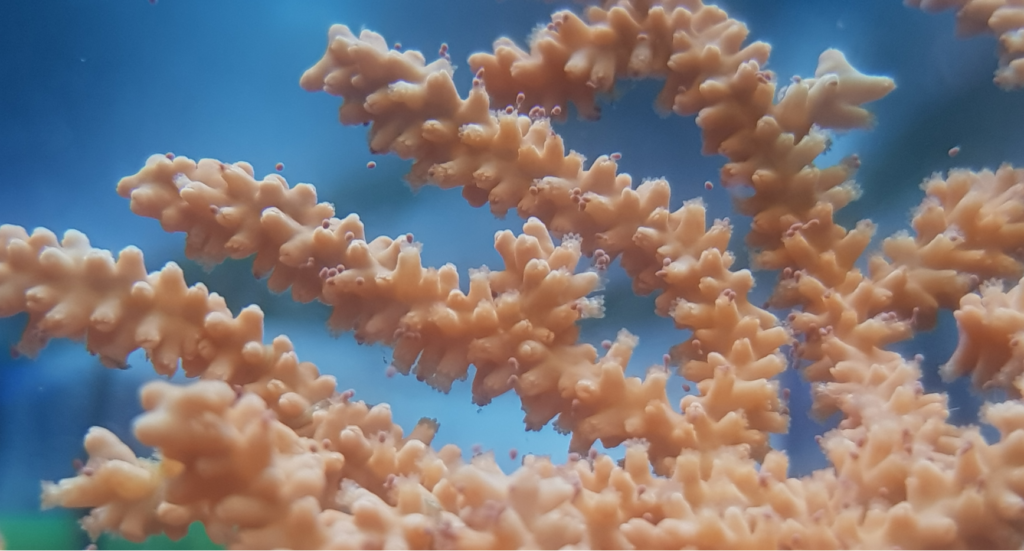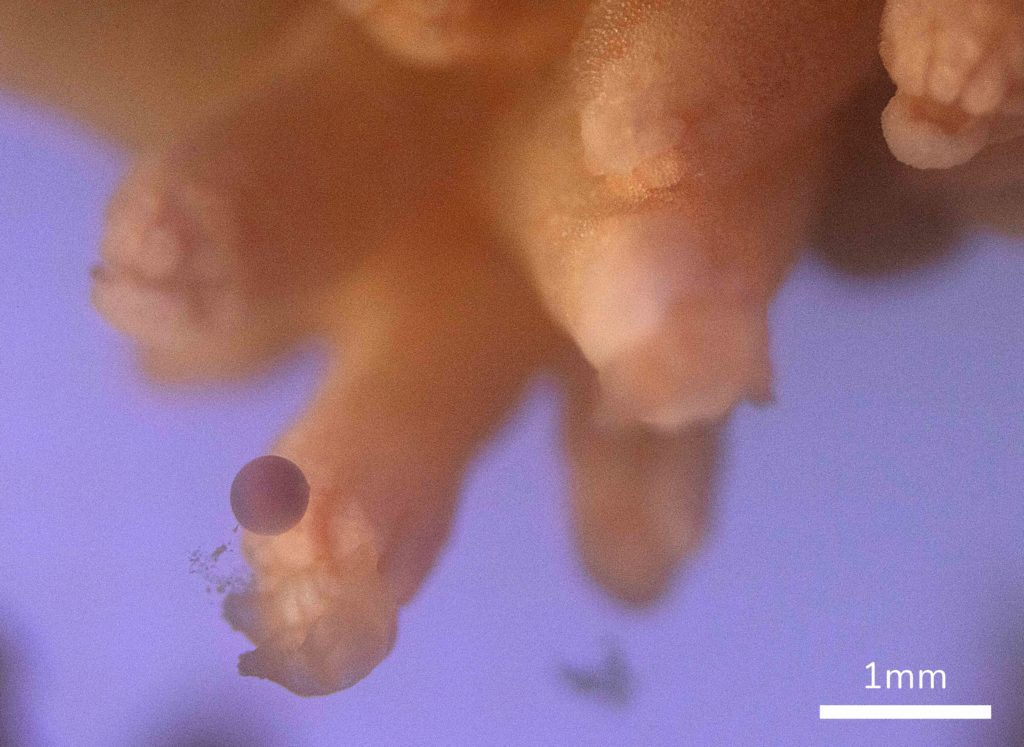Threatened Pink Sea Fan coral breeds in UK aquarium for first time

Pink Sea Fan spawning. Credit Kaila Wheatley Kornblum
A threatened species of UK coral has been bred for the first time in a UK aquarium, at the Horniman Museum and Gardens in south London.
New photographs capture the landmark lab-based reproduction of Pink Sea Fan, Eunicella verrucosa, the first time the native temperate coral species has been successfully reproduced in a UK institution.
Pink Sea Fans are found in coastal waters from western Ireland and southwest Britain to the coasts of West Africa and the Mediterranean.
They are under threat in the UK and classified as vulnerable worldwide on the Red List of Threatened Species, published by the International Union for Conservation of Nature.
The Pink Sea Fans – collected from a wreck off the coast of Teignmouth, south Devon by a team from the University of Exeter – are cared for in the Horniman Aquarium’s Project Coral lab, home to its pioneering coral reproduction research.
The spawning is part of University of Exeter PhD student Kaila Wheatley Kornblum’s research into the reproduction, larval dispersal and population connectivity of Eunicella verrucosa.
Supervising her PhD are Professor Jamie Stevens (University of Exeter) and Dr Jamie Craggs, Principal Aquarium Curator at the Horniman and lead scientist on Project Coral.
Dr Craggs said: “This marks the first time this species has been spawned and reared in the UK and is a major step forward in conserving the species.
“It’s wonderful to see the larvae now starting to settle and grow into juvenile sea fans.
“The success of the spawning is thanks to the exceptional husbandry skills of the Horniman Aquarium team, who are working behind the scenes of our popular aquarium on a number of exciting coral research partnerships.”

Pink Sea Fans are believed to have been successfully bred by only one other institution, Lisbon Oceanarium in 2023.
Kaila Wheatley Kornblum said: “It’s absolutely incredible to witness the eggs being expelled and the larvae swimming around.
“This is a ground-breaking achievement and offers us a long-awaited opportunity to expand our knowledge on temperate coral reproduction, especially larval development and settlement, key areas highlighted by our group’s previous work but unobserved until now.
“This is a big step in our understanding of the species and conservation of the pink sea fan.”



